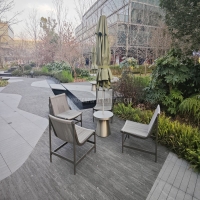Welcome to the website for landscape facilities products and knowledge.
How does concrete resist alkali-silica reaction?
Alkali-silica reaction (ASR) is a chemical process that can cause severe damage to concrete structures over time. However, modern construction practices employ several strategies to mitigate this issue effectively.
1. Low-Alkali Cement: Using cement with reduced alkali content (Na₂O equivalent <0.6%) minimizes reactive silica interaction, a primary trigger for ASR.
2. Pozzolanic Additives: Supplementary materials like fly ash or silica fume chemically bind alkalis, preventing them from reacting with vulnerable aggregates.
3. Lithium-Based Compounds: Lithium nitrate or lithium carbonate additives disrupt the ASR gel formation, preserving concrete integrity.
4. Non-Reactive Aggregates: Selecting aggregates tested for low silica reactivity (per ASTM C1260/C1293) reduces expansion risks.
5. Moisture Control: Proper curing and waterproofing limit water penetration, as ASR requires moisture to propagate.
By combining these methods, engineers ensure concrete structures resist ASR, extending their service life significantly. Regular testing and material optimization remain critical for long-term performance.
Related search:

Recommendation
Metal structure rattan chair without armrests for single person, with woven seat and backrest.